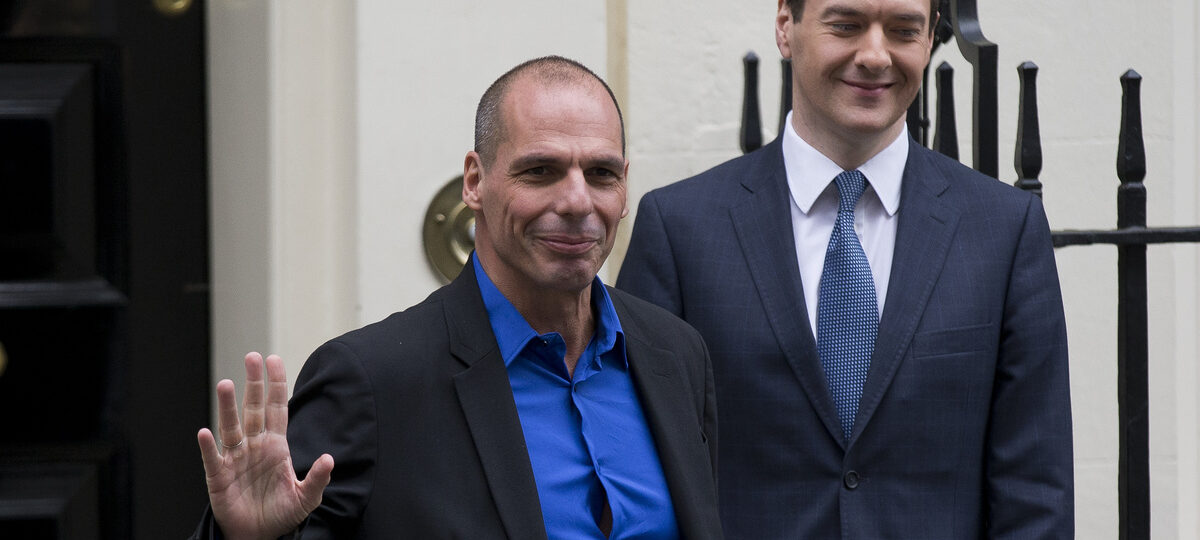It’s barely two weeks since the Greeks elected an anti-austerity government, but the dominant economic and political establishment is looking to quietly dissipate its energy and dynamism so it can return to unsustainable-debt-enforcement-as-usual.
UK chancellor George Osborne, along with David Cameron, has led the criticisms of Greece’s ‘far-left’ led coalition, but this is every bit as much to do with his own austerity agenda than any particular concern he has for the Greeks, who have suffered six years of painful, self-defeating economic retrenchment.
That’s because Osborne, more than most other national leaders, is wedded to an austerity agenda as the pretext for cutting the state to a pre-1930s rump – a state that would, to all intents and purposes, be powerless to resist the power of corporations.
Any credible popular revolt against austerity threatens Osborne’s real motivation: to remove the state, over the long term, as a democratic system and as a mechanism able to implement any form of wealth redistribution.
Journalism | Design | Photography | Video
